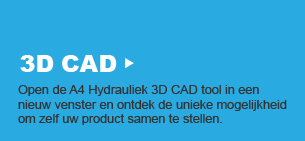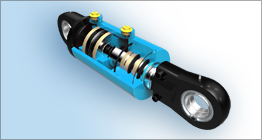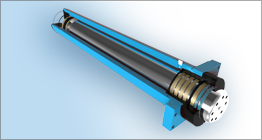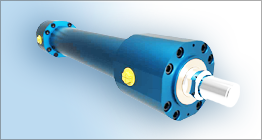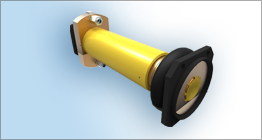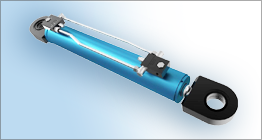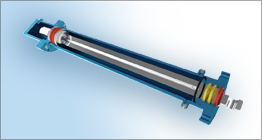It's interesting because mobile hydraulic equipment already gets a much harder life than its industrial counterpart. There are three main reasons for this:
The first is operating environment.
While there's plenty of industrial hydraulic equipment working in dirty, dusty conditions and temperature extremes
- this is the norm rather than the exception for mobile.
The second is tank size.
Due to space and weight restrictions, the tank capacity of mobile hydraulic equipment is always less than ideal.
This means that there's less oil circulating in the system and it has a shorter dwell time in the tank to give up contaminants such as particles, water and air.
And the third is operating pressure.
Again, while there are plenty of high-pressure industrial hydraulic systems around, it's mobile that always pushes the envelope. And the reason for this is simple.
In a hydraulic system, power is a product of flow and pressure.
Similarly, force is a product of area and pressure.
So if pressure is increased, flow and area can decrease for the same power and force respectively. On machines where space and weight are an issue the advantages are obvious.
So while this new operating pressure forecast of 450 bar is not surprising, it will further increase the stress on mobile hydraulic machines.
Beyond the obvious material-strength issues - seals, hoses and other components must be designed to withstand the increased operating pressure, consider for a moment how this will impact reliability.
As already stated, force in a hydraulic system is a product of pressure and area. So when operating pressure increases - so do loads on lubricated surfaces.
Oil viscosity and film strength are vital to maintain full-film lubrication between heavily loaded contacts.
I already consider the oil to be THE most important component of any hydraulic system. But this will definitely be the case for mobile machines operating at 450 bar. Selection AND maintenance of the oil will be critical for optimum reliability.
Similarly, contamination control will be more important than ever. Why? Because the more heavily loaded the machine
- the more susceptible it is to wear and damage from water and particle contamination.
My prediction is the 'next generation' of mobile hydraulic equipment will present real challenges for both machines designers and equipment owners.
For machine designers with little or no understanding of hydraulic equipment maintenance and reliability issues
- their mistakes and omissions on the drawing board are going to be magnified in the field.
For mobile equipment users whose maintenance practices are unsophisticated or non-existent
- their hydraulic equipment operating costs will soar.
The good news is this new generation of mobile hydraulic machines is still a couple of years away.
So regardless of which side of the fence you're on - OEM or end user, there's still time to get your act together.
By Brendan Casey
.jpg)











